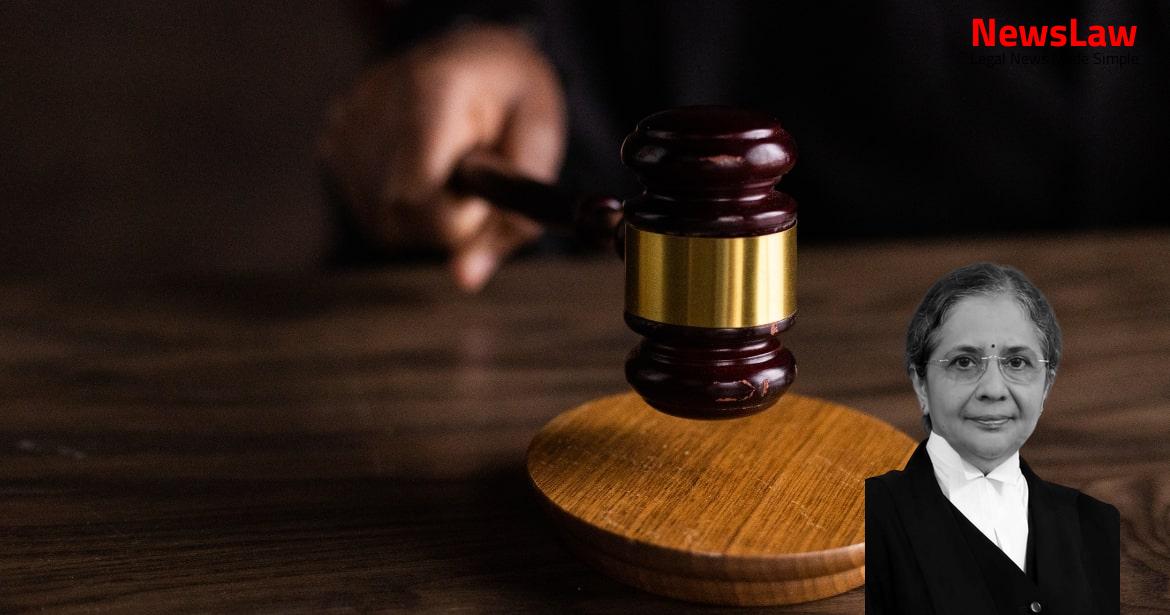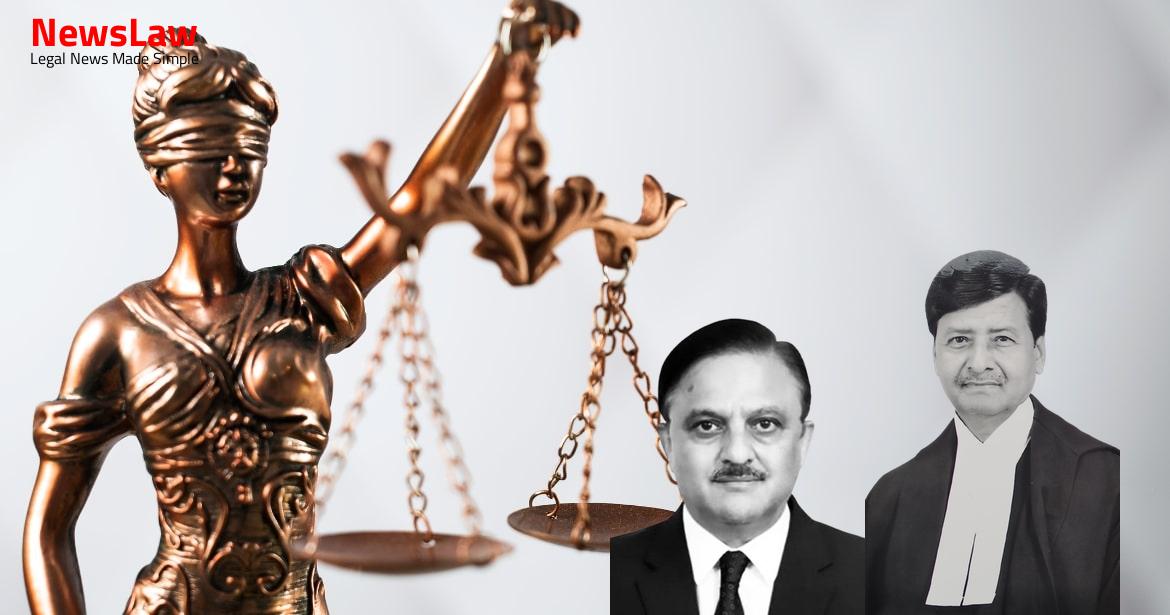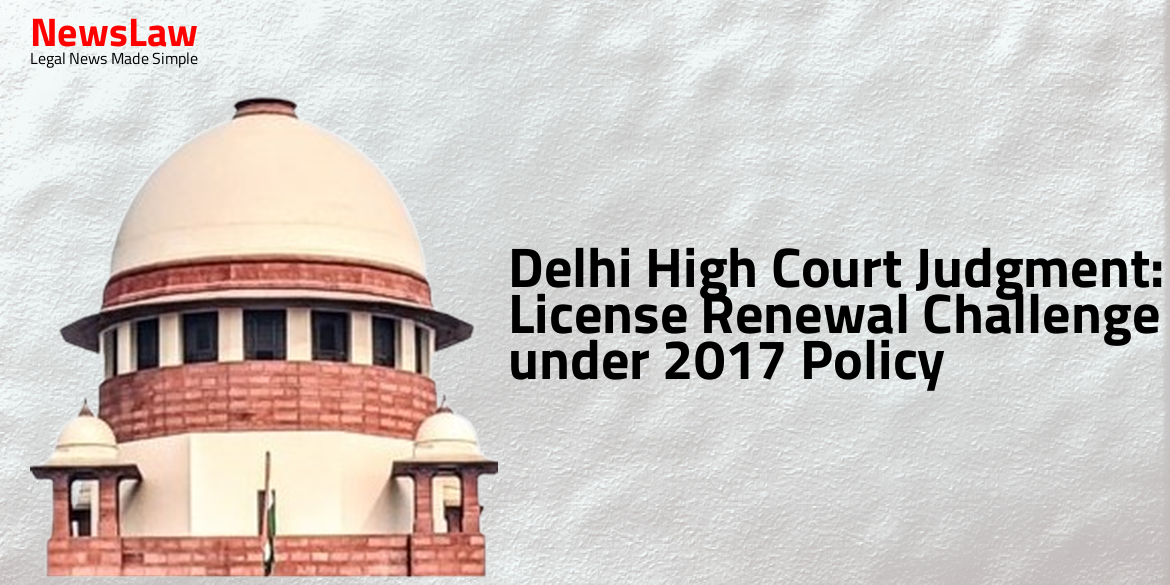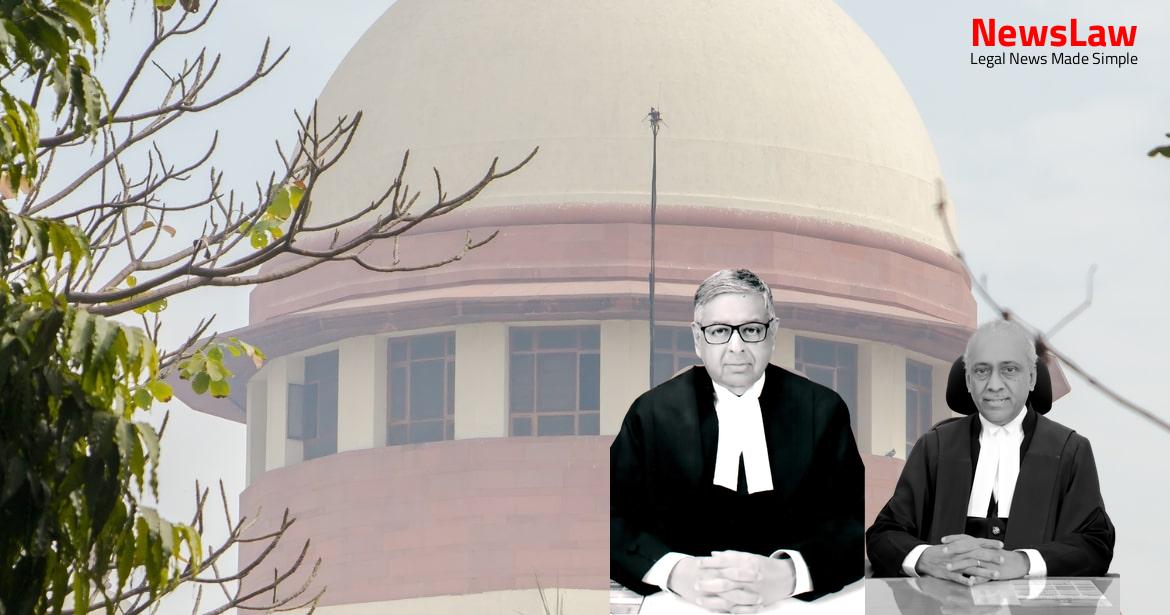The case involves a detailed legal analysis by the Court regarding the application of the ‘equal pay for equal work’ principle in a post-retirement upgradation scenario. The Court delves into the complexities of job evaluation and how the principle should be interpreted in such cases. Stay tuned to understand the nuances of the legal analysis and its impact on similar cases.
Facts
- Respondent no. 1 retired from the post of PCCF on 31 December, 2001.
- Amended Rules of 2008 provided for the upgradation of one existing post of PCCF to be designated as the Head of Forest Force in each State cadre.
- The upgradation was to be made w.e.f. the date of issue of the notification of the Amended Rules, 2008 i.e. 27 September, 2008.
- The upgraded post was to be filled by selection from amongst the officers holding the post of PCCF in the State cadre in the HAG+ scale of Rs. 75,500 – Rs. 80,000.
- High Court allowed the Writ Petition of respondent no. 1 challenging the order passed by the Tribunal.
- The High Court applied the principle of ‘equal pay for equal work’ to grant respondent no. 1 the benefit of the apex scale of the upgraded post of Head of the Forest Force.
- Appellant challenged the orders passed by the High Court through appeals.
- Court to consider if High Court misdirected itself while applying the ‘equal pay for equal work’ principle to the case of respondent no. 1 who had already retired as PCCF.
- Review petition filed by the appellant was dismissed by the High Court.
- Respondent no. 1 made a representation to revise his pension which was rejected by the Government of India.
- Government of India made the Indian Forests Service (Pay) Rules 2007 which were amended to Indian Forests Service (Pay) Second Amendment Rules, 2008.
- Appellant-State of Madhya Pradesh appealed against Judgments and Orders dated 28.04.2017 and 17.09.2019 by the High Court of Madhya Pradesh.
- High Court ruled that respondent no. 1 was eligible for a pension of Rs. 40,000 at par with other officers as per the Rules of 2008.
- Appellant challenged the High Court’s order in the Supreme Court through an SLP.
- Supreme Court clarified that it had not considered the matter on merits yet.
- The Supreme Court’s order on the SLP was issued on 1 December 2017, where it observed the petitioner’s retirement post.
Also Read: Electoral Malpractices in Mayor Election
Arguments
- The appellant argues that the respondent, who retired in 2001, cannot be granted the benefit of an upgradation that occurred in 2008 as per the Rules of 2008.
- The appellant challenges the High Court’s decision based on the principle of ‘equal pay for equal work.’
- It is pointed out that the High Court made errors in recording certain facts in its order.
- The court had granted the appellant liberty to approach the High Court and disposed of the SLP without expressing any opinion on merits, keeping all issues open for consideration.
- Reference is made to the case of K.S. Krishnaswamy & Ors. Vs. Union of India & Anr. (2006) 13 SCC 215.
- The respondent was not working on the upgraded post of Head of the Forest Force, as designated in 2008, and the High Court’s observation on this was deemed erroneous.
- The principle of ‘equal pay for equal work’ was argued to not apply to the upgradation of the post of PCCF as Head of Forest Force in the apex scale, which required selection and was effective from 27 August 2008.
- Respondent’s advocate argued for equal pay for equal work, stating that the work and responsibility of a PCCF, M.P. and the upgraded post of PCCF, Head of Forest Force were the same.
- It was mentioned that the officers appointed as PCCF, MP were also designated as the Head of the Forest Department, M.P. before the Amended Rules of 2008.
- The Advocate highlighted that the respondent was listed as PCCF, M.P., signifying he was also the PCCF, Head of the Forest Department.
- The post of PCCF, Head of Forest Force in IFS was explained to be an upgraded position from the existing PCCF role in the department.
- The advocate argued that even though the respondent had retired in 2001, he should be eligible for pension as per the upgraded apex scale of Rs. 80,000/-.
Also Read: Balancing Power and Transparency: Electoral Bonds Struck Down, Disclosure Mandated
Analysis
- Recourse to the Court not barred after High Court review petitions.
- Court did not consider the matter on merit due to complexity and financial implications of job evaluation.
- Filling up post by selection is necessary, not automatic based on seniority.
- Respondent’s claim for apex scale post-retirement was misconceived.
- Upgraded post to be filled by selection, not automatically as per the amended rules of 2008.
- Equation of post and pay scales best left to expert bodies, not judiciary.
- The High Court misapplied ‘equal pay for equal work’ principle in this case.
- Article 227 power to be used sparingly and not to correct mere errors.
- Appellant’s right to move the Court after High Court decision stated clearly.
- Preliminary objection of barred recourse to Court found unsubstantial.
- Equal pay for equal work is not a fundamental right vested in any employee, but a constitutional goal.
- The Administrative Tribunal rightly rejected the claim of the respondent for the apex scale based on ‘equal pay for equal work’.
- The High Court wrongly set aside the Tribunal’s decision using the principle of ‘equal pay for equal work’ under Article 227.
- The Supreme Court in the case of Sudhakar Baburao Nangnure Vs. Noreshwar Raghunathrao Shende 2020 (11) SCC 399, reiterated the principle that any submissions not considered by the High Court should be brought to that court for rectification.
- High Court orders were found to be misconceived in law and facts.
- Impugned orders were set aside and quashed.
- Tribunal did not commit any jurisdictional error or failure of justice.
- Interference by the High Court in the Tribunal’s order was deemed unwarranted.
Also Read: Recall of Resolution Plan Approval: Legal Analysis
Decision
- The appeals are allowed accordingly.
Case Title: STATE OF MADHYA PRADESH Vs. R.D. SHARMA (2022 INSC 101)
Case Number: C.A. No.-000474-000475 / 2022



